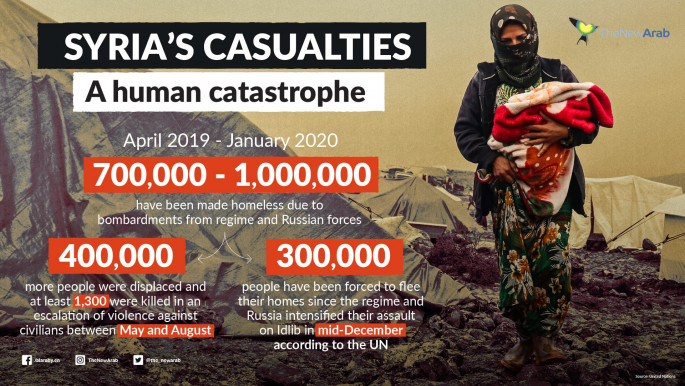Ankara calls for no-fly zone over Syria's Idlib after Turkish troops killed
Turkey on Friday called on the international community to establish a no-fly zone over the northwestern province of Idlib to protect civilians from Syrian regime bombardment a day after the killing of at least 33 Turkish soldiers.
"The international community must act to protect civilians and impose a no-fly-zone," Fahrettin Altun, communications director at the Turkish presidency, said on Twitter.
Syrian regime forces backed by Russian air strikes have since December waged a brutal assault on the Idlib region, killing hundreds of people and forcing nearly a million more to flee their homes and shelters amid bitter cold.
The United Nations said on Monday that the latest fighting was coming "dangerously close" to the makeshift camps where displaced people were sheltering, risking an imminent "bloodbath".
"Millions of civilians are being bombarded by air for months now. Infrastructure, including schools and hospitals, is being targeted by the regime systematically. A genocide is happening slowly before our eyes. Those with conscious and dignity must speak up!" Altun tweeted.
|
|
"The regime has taken advantage of the international silence in the face of its crimes for years. Abandoning Idlib to its fate will mean that the regime's dreams will come true. They have been pursuing demographic and ethnic cleansing in this region. We cannot look the other way!"
More than 500,000 people have been killed and millions more displaced since the Syrian conflict began in 2011, mostly as a result of regime bombardment of civilian areas.
Syrian and international activists have previously called for the imposition of a no-fly zone to protect civilians from Assad regime bombardment, similar to the one imposed in Libya in 2011, but this has so far been rejected by NATO countries.





 Follow the Middle East's top stories in English at The New Arab on Google News
Follow the Middle East's top stories in English at The New Arab on Google News


